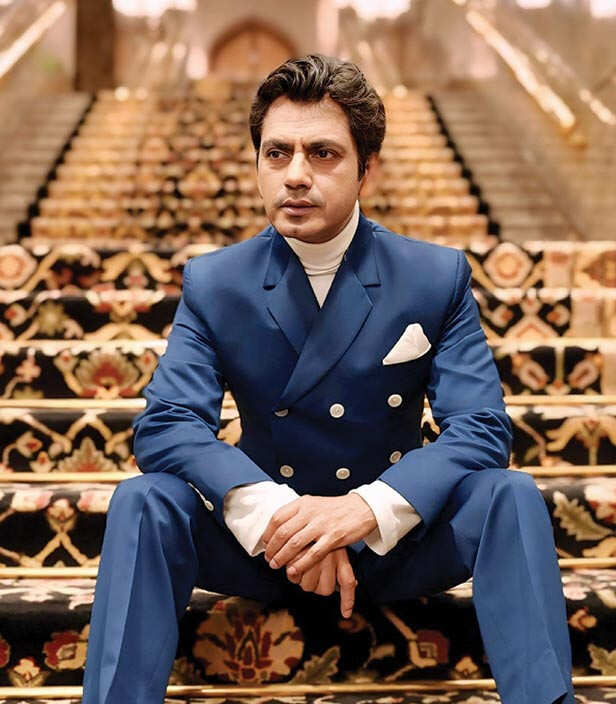
At 50, you’ve been in acting for 25 years. Can you recall a pivotal film that made you feel you’d truly made it as
an actor?For me, Kahaani was definitely one. In Talaash, I had the chance to observe and mimic my younger brother, who has a slight limp. Seeing how well it translated on screen was incredibly satisfying. Drawing from real life rather than just movies can bring out a character’s nuances more authentically.You play such dark characters. How do you tap into that darkness?Who doesn’t have darkness within them?You seem to have too much of it.I have poured mine out and become empty.When you read a script, do you naturally lean towards darker themes?When I portray a dark character, I relish the opportunity to explore their complexities. In Bollywood, however, deep characterization is not always the norm. Many roles tend to be superficial. If I were to play such roles repeatedly, I’d quickly lose interest. But when a character like Ramanna from Raman Raghav 2.0 comes along, I feel compelled to delve deeper and uncover new aspects of myself. That’s why I have a strong affinity for characters with shades of grey or darker personas.
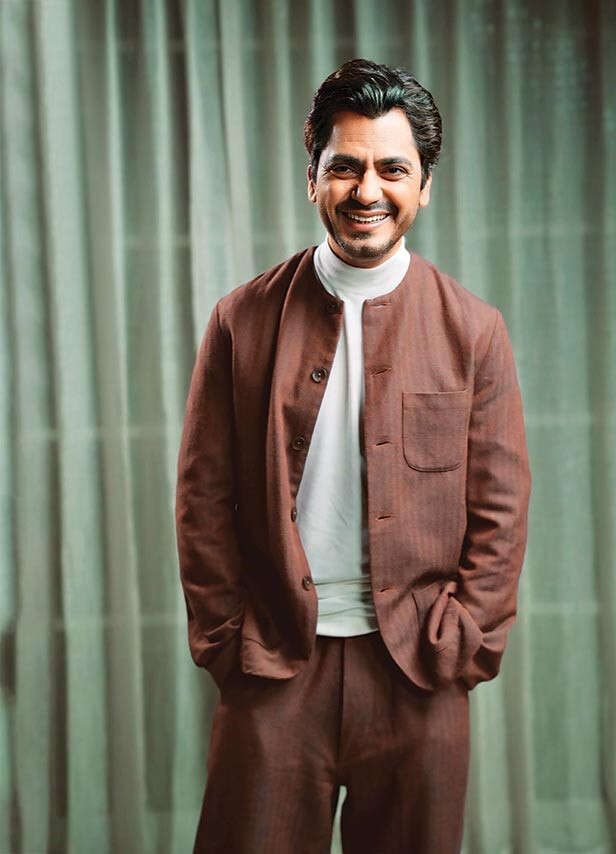
If you’re playing a negative guy like Raman Raghav, do you feel judgmental?If I judge, I won’t be able to do the character. I need to fully believe in my character’s philosophy. That I can also be like this. That I can also kill any person, if I feel like killing someone, I can. To believe this was difficult for me. You have to believe. Otherwise, don’t go for it.These days, heroes have multiple vanity vans. The size of the entourage determines the stature of the hero. How do you avoid all that?Personally, I’ve never felt the need to indulge in it. If I’m surrounded by 15-20 people who only agree with me, I feel it hinders my ability to act. I prefer to keep just a few close associates around me, who give me honest feedback. During my time on the English series McMafia, I observed something interesting. It featured many prominent actors, who arrived in regular clothes and used a modest vanity setup. When they performed, however, I realised their true talent and stature as actors.When you do big-budget films, can you save yourself from this facade?(Laughs) No, I can’t save myself then. But I know that this is all for show. I think it’s also important to show off a little bit.Tell me about your Cannes experience. It’s said that when you first went there you didn’t have a suit and you borrowed it from someone…I started going to Cannes in 2012. I think eight of my films have gone to Cannes. Miss Lovely, Manto, Gangs of Wasseypur, Monsoon Shootout, Bombay Talkies, and a few more. When I went there for the first time, I was amazed at how much respect they give to independent cinema. This year, Payal Kapadia won the Grand Prix for her film All We Imagine As Light and Anasuya Sengupta won the Best Actress prize for The Shameless. It’s wonderful. Great. And I hope that people also watch these movies. But I don’t know why the taste is not being developed. When I was in NSD, our seniors used to tell us to go and watch Birju Maharaj’s Kathak. We used to go and listen
to Bhimsen Joshi, Amjad Ali Khan, Pandit Ravi Shankar, and Bismillah Khan. Initially, I found it a bit boring but after a year, I couldn’t live without it. So, for a certain kind of art, the taste takes time to develop.You have worked extensively in South films. Don’t you encounter a language barrier?The director also briefs me about the upcoming scene. Understanding the emotions and then
the prompting makes it easy.
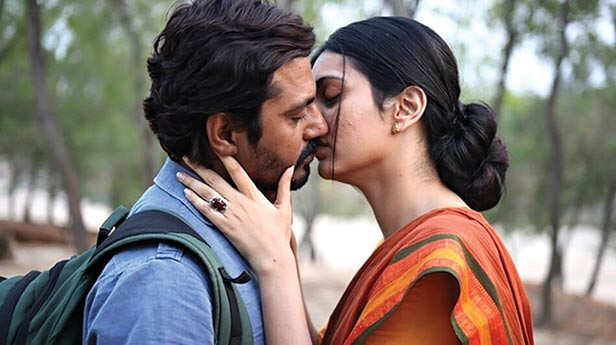
For instance, in a role like Raman Raghav 2.0, you maintain control but do you find a lack of control there?Yes, indeed. Because when I portray Raman Raghav, my emotions, thoughts, my very soul – everything is in control. In regional cinema, sometimes it feels like I don’t grasp it fully but due to financial reasons, I take on such projects.So do you compromise?Yes, compromise is the apt word.Does the audience know?The audience may not, but I am aware.When you were at NSD, you tackled roles like Othello and Hamlet. Vishal Bhardwaj adapted several Shakespeare works. How would your portrayal of Hamlet differ from Vishal Bhardwaj’s interpretation?
If I were to play it, I would undoubtedly bring a distinct approach. I even played Romeo in Romeo And Juliet once.
Can you believe that? And do you know who played Juliet?
It was Geetanjali Kulkarni.
Reflecting on your NSD colleagues, like Vijay Raaz, what discussions do you share when you meet now?We spent so much time together that now our interactions can seem mundane. We reminisce about cinema from our time. Nowadays, it’s mostly just, “How’s
it going?” and “It’s going well.”
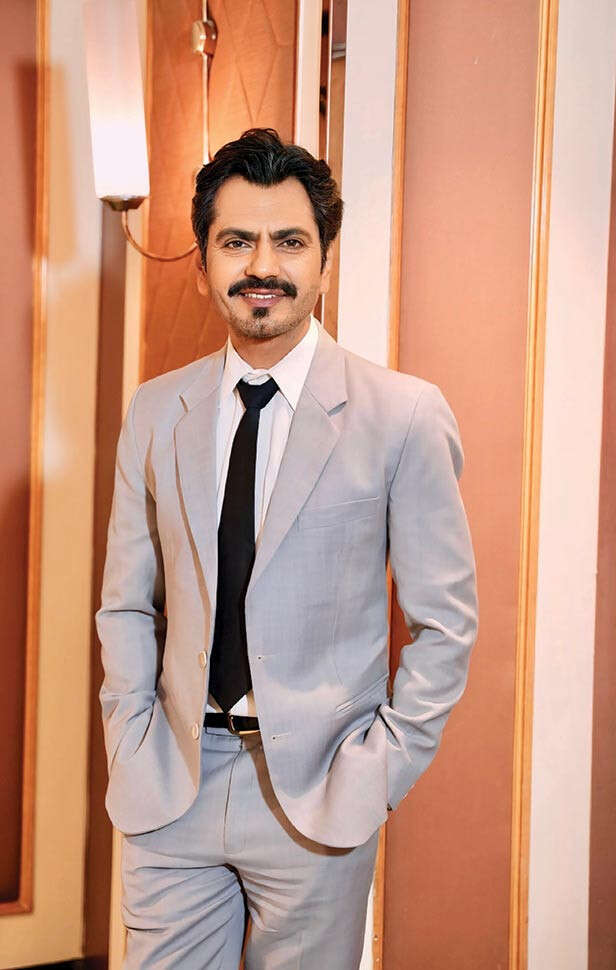
Do your colleagues envy your success?I don’t think so. We take pleasure in one another’s achievements. When Rajpal (Yadav) accomplishes something noteworthy or when Vijay (Raaz) excels, I am genuinely delighted. There is
no envy.During your time at NSD and beyond, which actors inspired you?Actors like Peter O’Toole, Sir Lawrence Olivier… their performances in works like Hamlet and Othello left a lasting impression. I was captivated by their performances because they involved no camera tricks—just pure acting.You coached Kamal Haasan on Hindi dialogue for Abhay. How did that come about?A senior from NSD informed me of the opportunity that Kamal ji needed coaching in Hindi dialogue.
I would hold the script and assist with the dialogue. I also had a scene in Hey Ram, but unfortunately, it was cut. During that time, I had the chance to converse with Kamal ji about acting. Once, I even performed Tughlaq’s speech for him. He then challenged me to perform the same character in 10 different ways.Did you manage it?I could manage two or three but how could I do 10? He has exceptional control over his body due to his background in dance. He’s a choreographer. That’s why he can do it. I can’t. That’s what makes him a great actor.And what about actors like Balraj Sahni, Dilip Kumar and Sanjeev Kumar?Certainly, Balraj Sahni’s simplicity and his ability to convey so much with so little was remarkable.
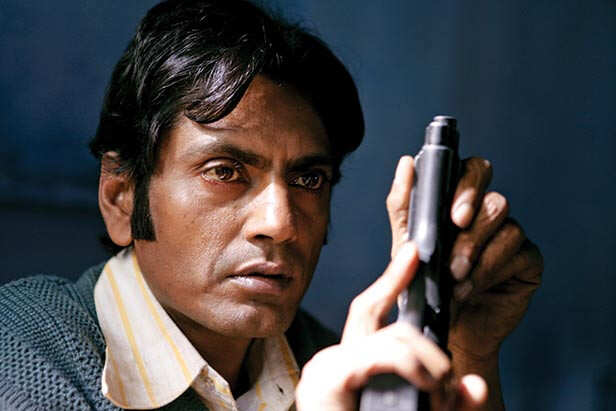
I believe you also embrace the less is more technique.I try to. Initially, you feel compelled to do more, to prove yourself. Later I realised that in cinema, less is more impactful. That’s when I began to understand that everything is magnified in front of the camera. Even a slight expression can appear significant. That’s why Robert De Niro said, “If it’s conveyed through an eyeball shift, there’s no need for a long speech or passage.”Did you have to unlearn what you learnt in theatre when you transitioned to movies?Absolutely. Movies operate under a completely different system. The camera explores activities, while the stage demands acting. For instance, if I want to portray a villain on stage, I would express it through body language and dialogue delivery. But in cinema, a single activity can convey how dangerous the character is because the camera captures these small nuances.
Why haven’t you pursued theatre in Mumbai? Is it because the money is less?
It’s not about money. If I were after money, I would have opened a sugar factory in my village. Sugarcane grows in our fields.Then why aren’t you doing theatre?
When I first came to Mumbai, I struggled for ten years before work started coming my way. During that time, the fervour of doing theatre gradually faded within me. Theatre demands a lot of dedication and rehearsals. I can’t just be handed a script, practice for a couple of days, and then perform.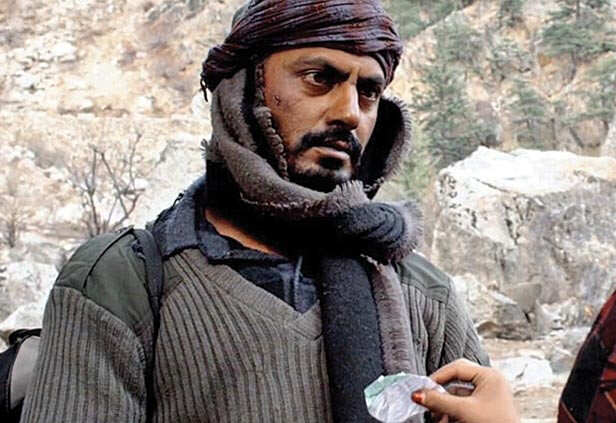
How much does a co-actor contribute to your performance?Great actors like Irrfan support you. When you look into their eyes, you understand the scene and the dialogue. For example, I’ve worked with Mr. Bachchan in three films. When working with him, if I start thinking of him as Mr. Bachchan, I’m disrespecting his character. It’s character-to-character interaction. For the first five-six days, I might be in awe, but after that, I have to act. Otherwise, it’s disrespectful. So, you have to shed that awe. More than half of acting is reacting.You own a bungalow in Mumbai now. Do the perks of stardom lure you?I’m not interested in cars, bungalows, jewellery, or watches. I never wear any of those things. However, my brother showed me this property. It appealed to me because of the greenery all around. You wouldn’t believe you’re in Mumbai. So I bought it.How often do you spend time at your bungalow? And how much time do you spend in Budhana?I spend less time in Budhana now. It’s been about a year and a half since I last visited.
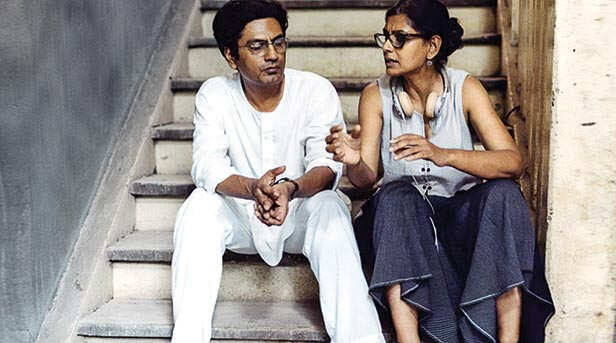
Looking at your impressive track record, do you ever feel like you have done everything?I won’t feel that way my whole life. I feel there will always be some things left. I want to do more creative work.Whether it’s Guru Dutt or Manto, not much is talked about men’s mental health. Have you ever felt the need for therapy or counselling?I did go to therapy during Manto. If I were to meet Manto today, I would ask him where he found the courage to write so candidly, especially in a world that often discourages such honesty. Considering his proximity to the film industry, as evidenced by his insightful essays, I would also inquire about his experiences and interactions with figures like Sitara Devi and other intriguing personalities he encountered.Is mental health an issue for you?No, mental health is not an issue for me. When I portray a dark character, it affects me for about a month. When starting a new film, I have to reset and completely leave behind the previous role.In Sacred Games, you have an affair with a transsexual. Now, in Haddi, you portrayed a transsexual. Given your strong alpha male presence, how did you access the feminine energy required for this role?As artistes, we’re blessed to explore thousands of characters within ourselves. Each of us harbours a good girl, a mother, a father, a brother, a friend—all waiting to be discovered. The universe resides within us. Thanks to my directors, I’ve had the privilege to uncover these roles through challenging characters.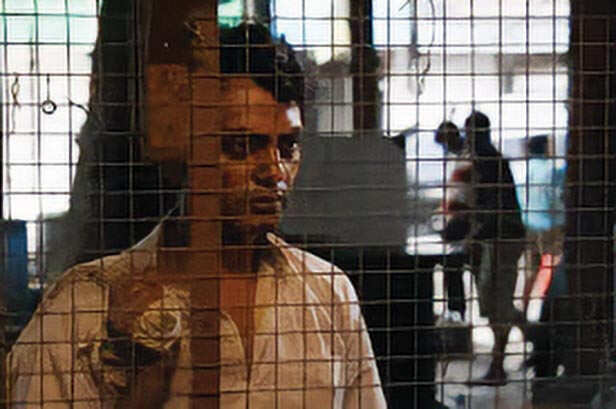
In Haddi, there’s a poignant love scene with your co-star. What emotions did you experience during that moment?I delved into the feeling of female jealousy intensely in that scene with Zeeshan. The character believes he’s everything to her, and if he leaves, her world would collapse. This kind of insecurity resonated deeply with me. Despite some thinking, I portrayed a transgender character, I played a female role. It’s said that when a girl loves, she loves intensely each time, even if it ends abruptly. I aimed not to portray this character in a caricatured manner, wanting to maintain authenticity.
Tell me a little about
your struggling days. Did you lose work because of your looks?I was told, “You don’t look like an actor.” Now, anyway, there has been so much change. If a person of my height and size goes to an office, saying I am an actor, people take it seriously. They didn’t take me seriously before.And if the same producer, director, wants to come back and sign you now?Yes, it happened many times. But why would he give me work? Who was I? I did not look extraordinary. He’s right on his end.Do people constantly tell you to recite your dialogues?And I say, brother, forgive me. Because my acting was the worst during that time.Gangster Of Wasseypur was one of your most famous roles. Are you suggesting that your acting was bad?It was bad in that dialogue, which was popular. Baap ka, dada ka, bhai ka badla lega. What kind of dialogue was that? The dialogue may be good, but the way I spoke was bad.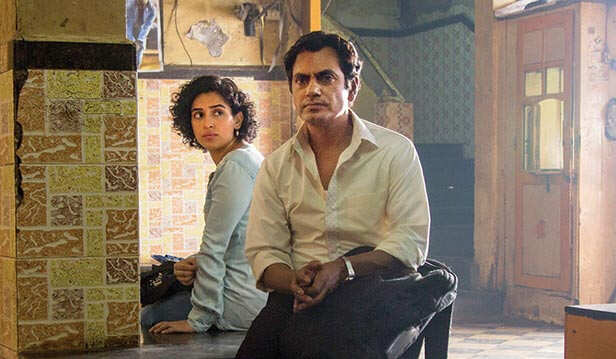
I don’t see him as a director; he feels more like a supportive brother. When I look into his eyes, I sense a safety net. I know he’ll catch me if I falter. For example, on the first day of filming Gangs, I was overacting, trying to channel Al Pacino. He called me out, saying, “What are you doing? Why are you showing off?” That moment made me realise I needed to approach my role differently. The next day, I went in with a humble mindset, embodying a character like Faisal Khan—just an ordinary person acting with genuine emotion.
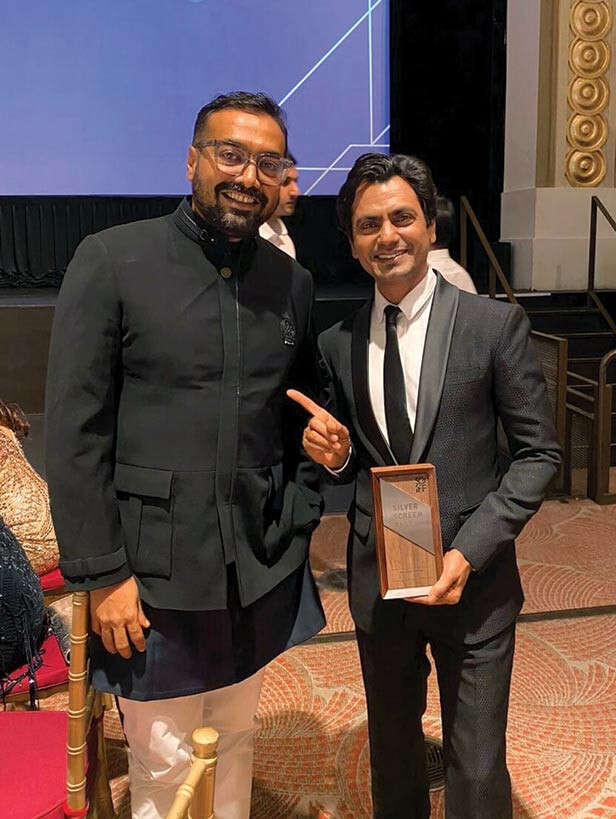
Do you understand your parents better now that you have children?
I certainly do. When I was in college in Haridwar, my father would travel from the village, carrying food and supplies for me. He had to change buses and was quite old, but I didn’t appreciate it then. After he passed away, I realised the sacrifices he made. Despite his failed businesses, I learned from him that perseverance matters. His struggles fueled my determination to succeed.Do your kids know you’re a star?Not really. They’ve heard my dialogues, but haven’t seen my films. Because most of my movies are rated for adults. They say my lines are great, but they haven’t watched the movies yet.
As for your daughter’s interest in acting, is it in the genes?
It seems to be a natural interest. She approached her school’s performing arts faculty in Dubai and asked to join. The teacher accepted her. She’s also taking workshops.
Isn’t she too young?
She’s 14 and going to a summer workshop in London. She’s already showing promise in her performances, understanding nuances like motivation and timing. It’s impressive, especially since we learned these things much later in life.
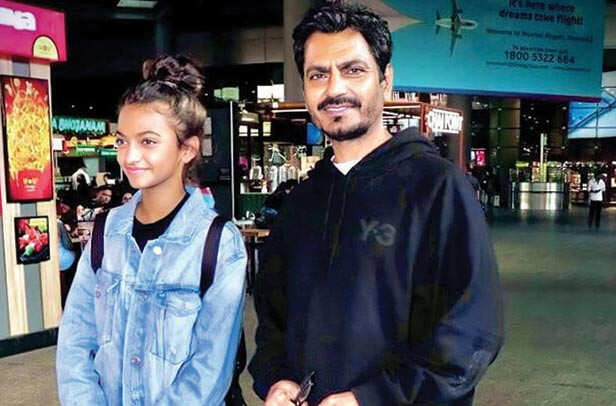
Does she ask you for help?No, she handles it herself. I think it’s great that she’s serious about it. I haven’t intervened because I believe it’s important for her to earn her successes and not take them for granted.Do you feel you missed out on their growing up?Yes, definitely. Every time I see them, they’ve grown so much.
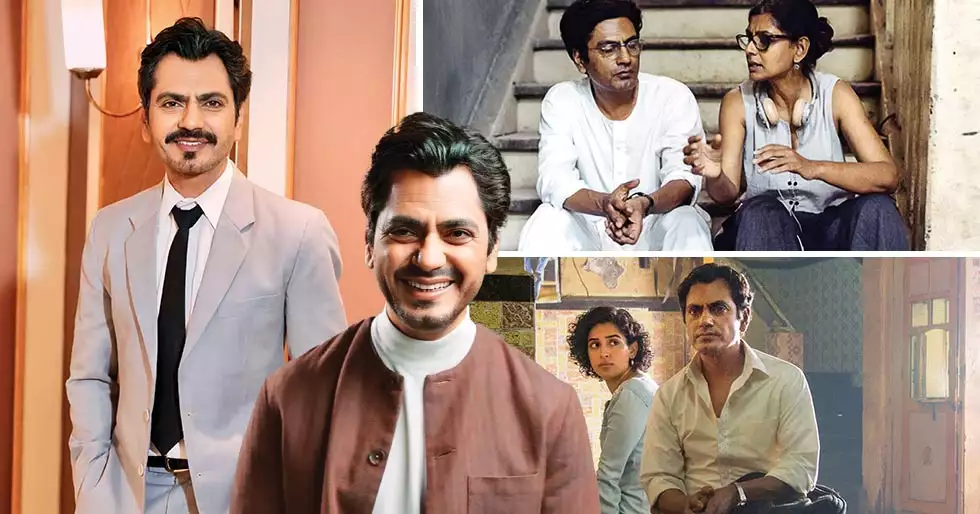








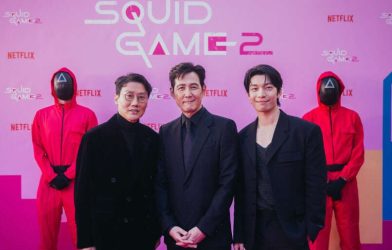
Comments are closed